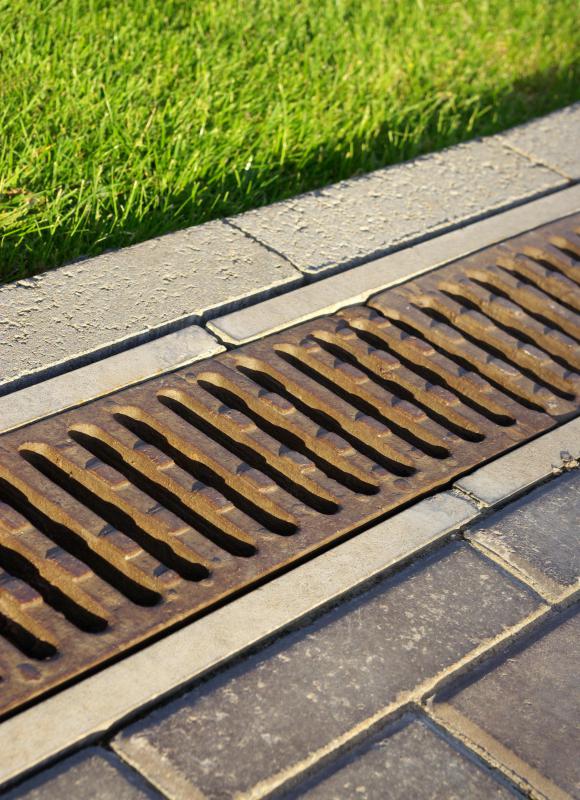At WiseGEEK, we're committed to delivering accurate, trustworthy information. Our expert-authored content is rigorously fact-checked and sourced from credible authorities. Discover how we uphold the highest standards in providing you with reliable knowledge.
What Does a Drain Commissioner Do?
A drain commissioner oversees surface water drainage in an area of operations such as a county or township. Different job titles may be used to refer to people who occupy this position, such as water resources commissioner, depending on regional preference. In the United States, the state of Michigan has an extensive drain commissioner program, while other states may bundle the work into other regional water quality and environmental agencies. In regions where such a position does not exist, various agencies can manage surface water drainage concerns.
This government official typically has a support staff who assist with various tasks in the office and the field. The drain commissioner works to ensure that surface water has effective and appropriate drainage routes, to limit problems like flooding and poor soil conditions. In many regions, reclaimed floodplains and marshes are used for development, and a drain commissioner is a critical public official who works to ensure that this land remains usable. In flood-prone regions, this work can require thinking about long term flood control and prevention as well as managing ongoing water issues.

Drain commissioners can inspect existing infrastructure to determine if it meets community needs, and may supervise repairs, retrofitting, and routine maintenance of drainage systems. These can include ditches, culverts, storm drains, and other systems that route surface water. Drain commissioners may inspect property to confirm that it drains safely and appropriately, and can mandate changes to real estate, such as creation of a ditch, to better handle surface water.
Proposals for new developments or rezoning may require review by the commissioner. The official determines if the proposed use of the land will impact surface drainage in some way, as for example when a paved parking lot resists water absorption, creating more runoff. The commissioner may request some changes to the plan to address drainage issues, or could make recommendations to improve drainage.
Regional taxes typically fund operations at a drain commissioner's office. The work includes substantial travel to view various sites around the region. In some regions, the job may require qualifications like a civil engineering degree, and support staff need some education and training. In areas where this official is elected, the drain commissioner's level of experience may vary. Qualifications can become a significant issue in a campaign, and most people come to the job with either formal education or experience with drainage issues, sometimes through work under a prior drain commissioner.
AS FEATURED ON:
AS FEATURED ON:











Discuss this Article
Post your comments